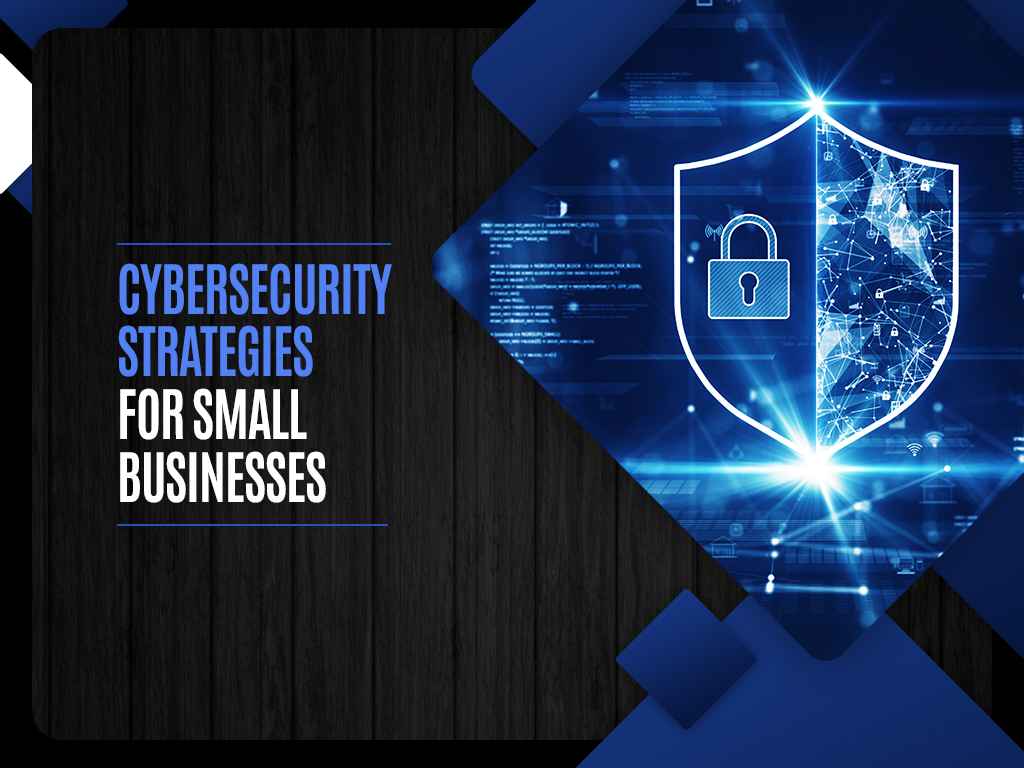Cybersecurity Strategies for Small Businesses

Cybercriminals target businesses of all sizes and industries, with small businesses being the focus of 43% of cyberattacks, according to a study by the Better Business Bureau. These attacks are primarily aimed at acquiring personal data. While larger organizations have more data to steal, small businesses have less secure networks, making them easier to breach.
Protecting your business from cyberattacks can be challenging, but implementing and practicing cybersecurity basics is crucial. Doing so will help safeguard your business and reduce the risk of a cyber attack. We offer the basic and most effective methods for improving cyber security for businesses.
What are the top 7 cybersecurity strategies?
#1 Use strong passwords and 2FA
Using strong passwords is a crucial cybersecurity strategy for small businesses and overall online security. A strong password should consist of a combination of uppercase and lowercase letters, numbers, and symbols, and be at least 12 characters long. It is important to avoid using easily guessed words or personal information like birthdates.
Additionally, enabling two-factor authentication (2FA) whenever possible adds an extra layer of security. With 2FA, you must enter a code from your phone along with your password, making it significantly more challenging for hackers to gain access to your account, even if they have your password.
#2 Conduct training
Your company’s first line of defense lies in your team members. No matter how advanced your cybersecurity technology may be, it remains ineffective if your team lacks proper training and education.
Remember, cybersecurity training is not a one-time event. It’s crucial for companies to regularly host monthly or quarterly training sessions to instill best practices.
One of the security measures is VPN. A good VPN for Safari browsers will help significantly reduce the number of DDoS attacks, data leaks, and phishing attacks. This means that even human errors can be smoothed out. Lastly, it is paramount to emphasize that employees should never share their system or password manager credentials, regardless of whether it is with the CEO or IT head.
#3 Perform a cybersecurity audit
Start by assessing the current state of your business. Are you sufficiently safeguarded against cyber threats? Are you secure in certain areas but lacking in others? Understand your current level of security to identify areas for improvement.
Heather Paunet, the senior vice president of product and marketing at Untangle, a provider of network security solutions for small businesses, suggests performing a quick security audit to evaluate the cybersecurity measures already in place. While implementing most security measures may require more than an hour, investing an hour in conducting an initial audit can be highly valuable.
#4 Use a VPN
How to cyber secure small businesses without serious material costs? Use powerful VPN services. Products like VeePN offer protection against many hacker attacks. By installing the Chrome extension by VeePN, you can protect yourself from phishing attacks, and man-in-the-middle attacks, and provide secure remote connections to production servers. It has a free trial version, so you can immediately audit systems with and without a VPN to make a final decision.
#5 Use access management solution
As part of your cybersecurity strategy, it is crucial to establish distinct access levels for employees, freelancers, clients, users, and contractors. By restricting access to data, software, and other systems, the risk of a breach can be significantly mitigated.
Companies must acknowledge that internal bad actors, such as employees who assist or carry out attacks, can also pose a threat.
Shockingly, in 2021, some hackers have offered employees hefty amounts, up to $1 million, to purposely install ransomware on their company’s network! Creating access levels will also facilitate the secure sharing of credentials through your password manager.
#6 Update and backup regularly
Maintaining business security involves two crucial yet often overlooked tasks: regularly updating the operating system and anti-virus software with new versions. Small business cybersecurity experts highly recommend backing up data at least once a week, though some suggest doing it every 24 hours. The frequency of backups should align with the acquisition of new and critical data. While cloud backup is convenient, remember not to store passwords or sensitive financial information in the cloud. Additionally, saving important data to an external hard drive disconnected from any network is a prudent measure.
#7 Develop a DR Plan
With an alarming rise in cybercrime, breaches have become nearly unavoidable. To limit the damage, it is crucial to have a well-defined disaster recovery (DR) plan in place.
Ideally, you should have all necessary safeguards in place before an attack occurs. However, in the event of an ongoing attack or when you discover a past breach, it is vital that everyone involved is aware of the appropriate actions to take.
Conclusion
By 2025, there is an anticipation of a twofold increase in cyberattacks, while a staggering 60% of businesses still lack a cybersecurity policy. To safeguard against cyber criminals, small businesses must acquire a comprehensive understanding of cybersecurity practices and devise impactful, distinguishing strategies. Notable tactics entail employee training, network security enforcement, and the establishment of a robust DR plan.



